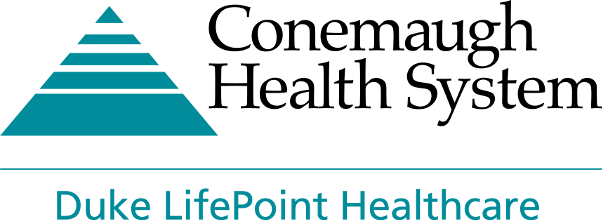Maternal Addiction Resource Center
The Maternal Addiction Resource Center (MARC) is a program within Conemaugh Health System that assists pregnant and postpartum women with treatment and any additional service needs. MARC is currently staffed with a Program Coordinator, Certified Recovery Specialist (CRS), Administrative Assistant, and Patient Navigators. MARC develops a comprehensive women-centered outpatient treatment program. Clients can receive assistance in obtaining psychological and medical services, support group services, recovery support from a Certified Recovery Specialist, case management including coordination of prenatal and pediatric care, parenting education, and other supportive services. Comprehensive care means that MARC treats the individual as a whole, not just one specific concern and provides multiple services to support expecting or parenting mothers and their recovery. MARC focuses on helping clients to navigate the many community resources available in a personal, safe environment.
The MARC Program is federally grant-funded. Conemaugh Health System is contracted with Cambria County Drug and Alcohol to provide services under this grant, while Cambria County Drug and Alcohol is responsible for reporting to the Department of Drug and Alcohol Programs at the state level.
Conemaugh Memorial Medical Center - Medical Arts Building
1111 Franklin Street, Suite 030
Phone: (814) 534-MARC (6272)
Fax: (814) 534-5445
Hours of Operation
Monday - Friday, 8 am - 4:30 pm
Assistance After Office Hours
Crisis Intervention: 1-877-268-9463, 24 hours a day
or call 911 or report to the nearest emergency department.
Make an Appointment
Call the Maternal Addiction Resource Center at (814) 534-6272 for more information or to make an appointment.
Contact Us Via Email
Click here to complete an online form. A MARC program representative will contact you.
Eligibility
- Pregnant or parenting up to one year postpartum
- Needing or in active treatment for a substance abuse disorder
Appointments / Cancellations
The time established for your appointments is dedicated to serve you. You may occasionally need to cancel or reschedule an appiontment due to unforeseen events. We ask that you provide a minimum 24-hour notice. Because of the nature of our work, there are times when critical situations demand our immediate attention. If we need to cancel your appointment, you will be called immediately and given an opportunity to reschedule.
Confidentiality
Confidentiality means that The MARC Program has a responsibility to safeguard information obtained during appointments. All identifying information about your assessment and treatment is kept confidential, except as mandated by law. You must sign a release of information before any information about you is given to anyone, except as mandated by law.
In certain situations, professionals are required by law to reveal information obtained during services to other persons or agencies without your consent. In such situations, The MARC Program is not required to inform you of their actions.
Please note the following exceptions to confidentiality:
- Confidentiality does not apply to cases of suspected abuse/neglect of children or the elderly.
- Confidentiality does not apply to cases of potential harm to self or others.
- Confidentiality does not apply to medical emergencies and crimes committed on the premises.
Patient Rules
- Maintain confidentiality regarding all MARC participants, family members, and vistors.
- Attend scheduled appointments.
- Notify the office if you must cancel an appointment.
- Be respectful to the office staff and other clients.
- Communicate with the staff regarding any worsening in your social, mental, and physical well-being.
- Do not engage in violent/threatening language or behavior, or illegal activity at the office.
Family Involvement
Family members / loved ones can play an essential role in helping a loved one along their road to recovery. Substance use disorder affects all members of the family. It is important for family members to be involved in both the treatment and recovery process.
You can support your loved one by:
- Keeping hope alive
- Maintaining a positive attitude
- Showing a willingness to learn
- Taking time to listen
- Participating in appointments, groups, therapy, etc.
- Helping your loved one avoid triggers (people, places, and things).
- Support your loved one’s involvement in meaningful and structured activities.
- Helping your loved one to establish a positive social network.
- Helping your loved one remember to keep their scheduled appointments and to take all medications as prescribed.
- Being supportive of your loved one’s birth plan.
- Helping your loved one identify coping skills, promote self-care, and limit stress.
- Acknowledging and reinforcing positive changes in your loved one’s behavior.
